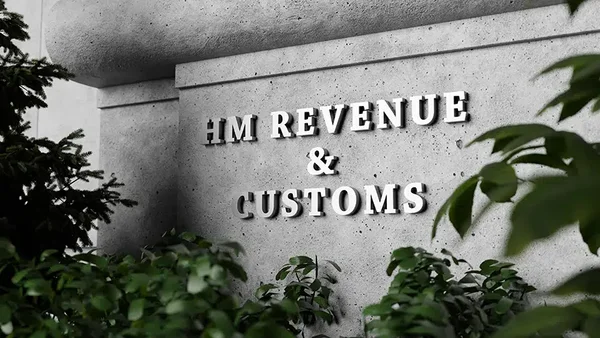Government Considers Classic Vehicle Taxation Review
The Treasury has been examining various tax policies as part of ongoing fiscal planning, including relief schemes that have remained largely unchanged for decades. Historic vehicle tax exemption represents one element within broader transportation taxation policy currently under review.
Chancellor Rachel Reeves has emphasised the government's commitment to fiscal responsibility while balancing economic growth objectives. The existing rolling exemption system automatically extends eligibility each year, meaning vehicles reach their 40th anniversary and gain exemption status progressively.
This mechanism has operated since 2014 when the rolling system replaced the previous fixed cutoff date. Current government revenue from Vehicle Excise Duty totals approximately £7 billion annually, with historic vehicle exemptions representing a relatively modest proportion.
Understanding Current Historic Vehicle Tax Exemption Rules
Vehicles manufactured or first registered before January 1, 1985 currently qualify for historic vehicle tax exemption under existing regulations. Owners must still tax their vehicles annually, but the charge amounts to sero pounds.
The system requires vehicles to maintain substantial originality, discouraging major modifications that would compromise historic authenticity. The Driver and Vehicle Licensing Agency (DVLA) administers the scheme, processing exemption applications based on vehicle age verification. Owners must provide documentary evidence including registration documents and manufacturing dates.
The rolling exemption advances annually, with vehicles turning 40 years old becoming eligible on the first day of April following their anniversary. This automatic progression has provided predictability for collectors planning acquisitions and restorations.
Financial Implications for Classic Car Collectors
Standard Vehicle Excise Duty rates currently range from approximately £20 to £695 annually depending on vehicle emissions and value. Historic vehicle exemption therefore represents significant savings for owners, particularly those maintaining multiple classic cars.
The classic car industry contributes an estimated £7.2 billion to the British economy annually according to industry analysis. Reintroducing taxation for historic vehicles could generate additional government revenue, though exact figures depend on implementation specifics. A standard rate applied to 440,000 exempt vehicles could theoretically produce tens of millions in annual receipts.
However, economic modelling must account for potential behavioral changes, including reduced vehicle usage, increased storage rather than road use, and possible market value impacts. Restoration businesses, parts suppliers, event organisers, and specialist insurance providers form an ecosystem dependent partly on accessible classic vehicle ownership.
Financial barriers created through taxation changes could affect participation rates in the hobby, with consequent effects on related commercial activity.
Industry Response to Potential Policy Modifications
Heritage motoring organisations have emphasised the cultural importance of historic vehicle preservation. The Federation of British Historic Vehicle Clubs represents approximately 540 member clubs with over 250,000 individual members collectively.
Spokesperson statements have highlighted classic cars' role in automotive heritage education and community engagement. Classic car owners typically drive their vehicles fewer than 1,200 miles annually according to industry surveys, resulting in minimal environmental impact compared to modern daily-use vehicles. Industry representatives argue that historic vehicles constitute a negligible proportion of total road usage and emissions.
Preservation advocates emphasise that classic cars represent irreplaceable cultural artifacts deserving protection similar to other heritage items. Specialist insurers report the classic car market has grown steadily, with younger demographics increasingly participating in historic vehicle ownership and restoration.
Any taxation changes could disproportionately affect newer enthusiasts with limited budgets, potentially aging the hobby's demographic profile.
Economic Context Behind Revenue Raising Measures
The government faces substantial fiscal challenges including public service funding demands, infrastructure investment requirements, and economic growth promotion. Chancellor Rachel Reeves has outlined plans to address what officials describe as inherited budgetary pressures while maintaining essential services.
Revenue raising measures across various sectors form part of comprehensive fiscal strategy. Transportation taxation represents a significant government income stream, with Vehicle Excise Duty providing billions annually for general expenditure.
The transition toward electric vehicles presents long-term revenue challenges as fuel duty receipts decline. Policy makers are examining sustainable taxation frameworks that adapt to changing vehicle technology and usage patterns.
Historic vehicle exemptions were originally introduced recognising classic cars' cultural value, limited usage patterns, and owners' contribution to automotive heritage preservation. The policy balance between revenue generation and heritage protection reflects broader questions about taxation philosophy and cultural policy priorities.
Future Outlook for Classic Vehicle Ownership
No formal proposals for historic vehicle taxation changes have been officially announced as government policy. Budget planning processes involve examining numerous options, many of which never proceed to implementation. Classic car stakeholders remain vigilant, preparing representations should formal consultations emerge. International comparisons show varied approaches to historic vehicle taxation.
Some European nations maintain similar exemption systems, while others apply reduced rates rather than complete exemption. Policy precedents from other jurisdictions may inform British deliberations should changes be seriously considered. The classic car community has demonstrated effective advocacy during previous policy discussions, successfully communicating the sector's economic contribution and cultural significance.
Organised representation through established heritage organisations provides channels for stakeholder input into policy development processes. Continued dialogue between government and the historic vehicle sector will likely shape any future policy evolution.
The possible review of historic vehicle tax exemptions has created uncertainty in the UK’s classic car community. Since 2014, vehicles over 40 years old have been exempt from road tax under a rolling system benefiting around 440,000 cars and supporting an industry worth billions.
While the Treasury considers new revenue options, no official changes have been proposed. Heritage groups argue that classic vehicles’ cultural value, minimal environmental impact, and economic contribution justify maintaining current rules. As fiscal reviews continue, tools like the Pie app help individuals manage their tax obligations efficiently.











